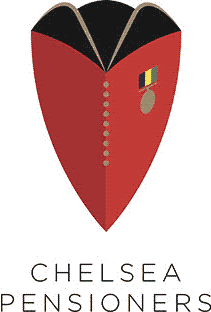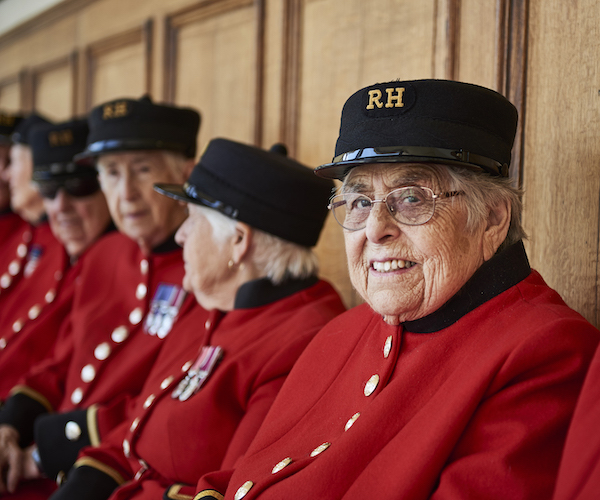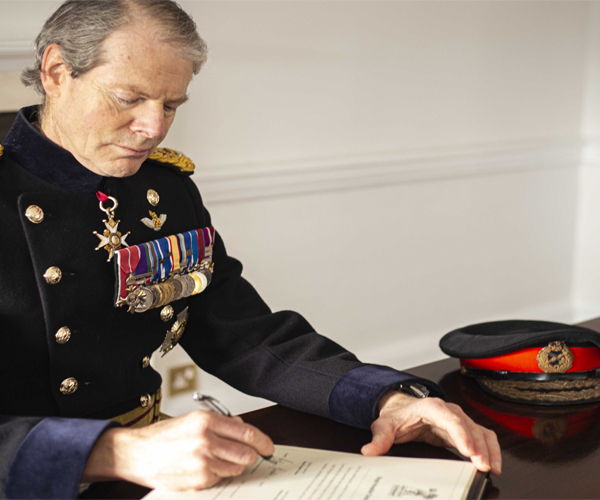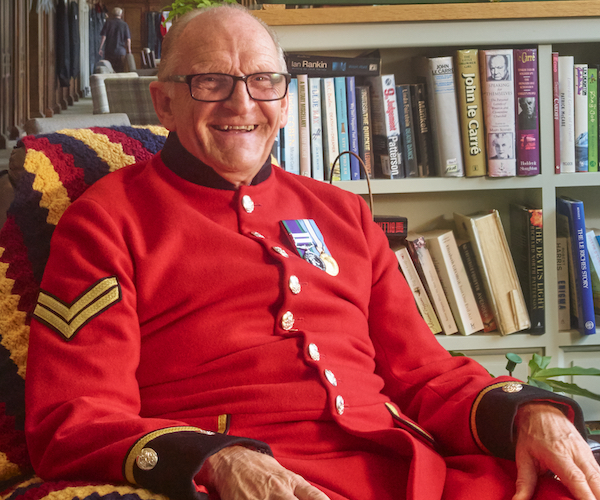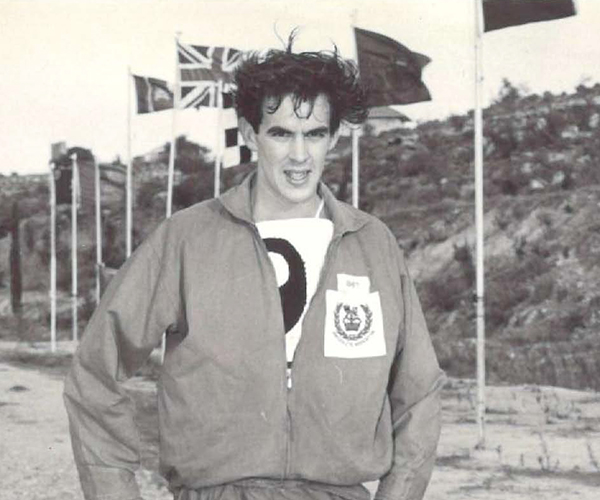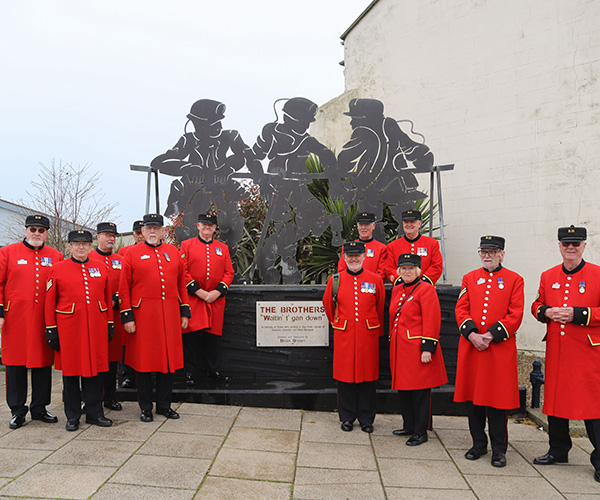The challenges of being a woman in the Army
8th March 2021
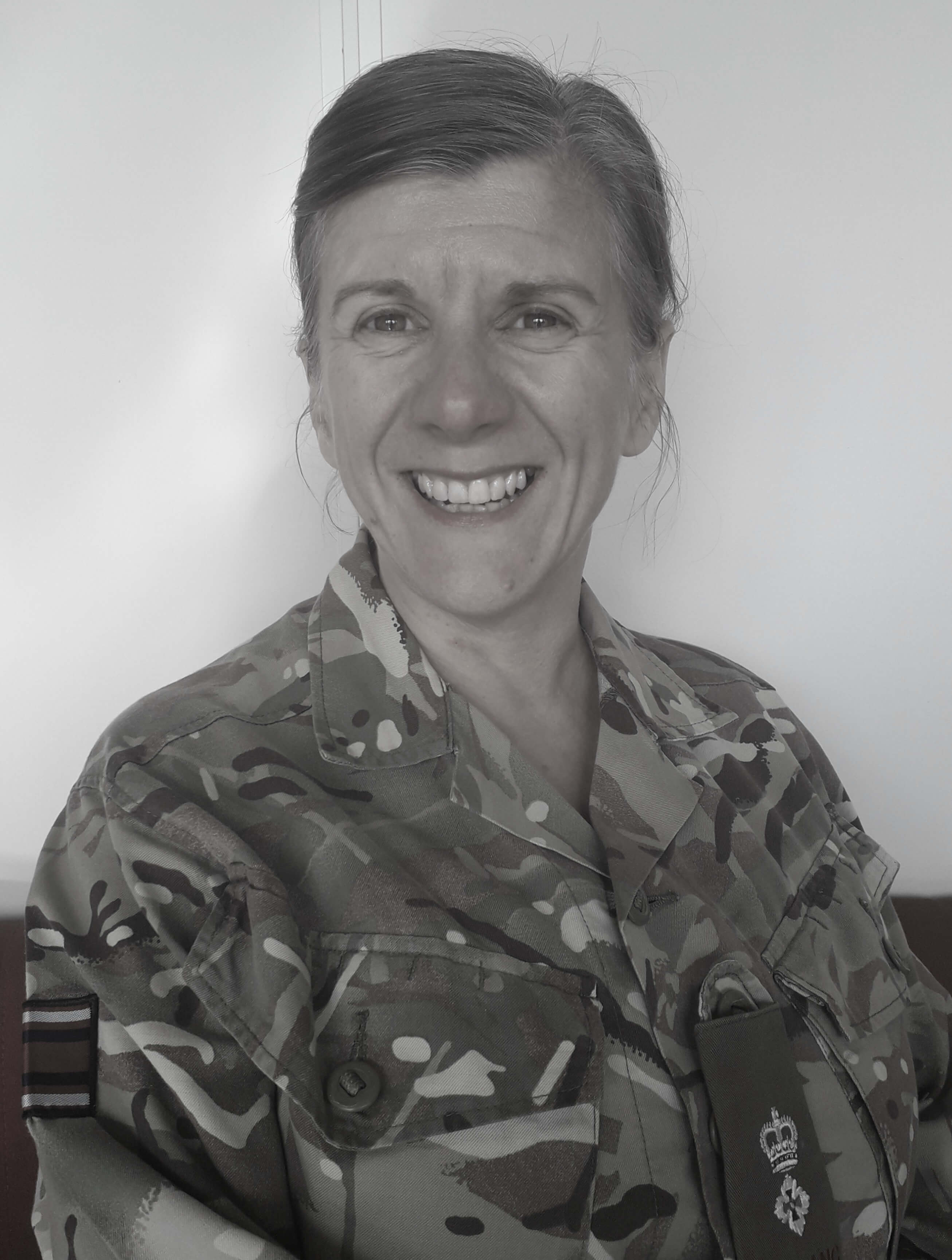
Throughout her life, Jayne has shown she’s not one to conform to stereotypes, or to be frightened to stand up for herself in the face of difficulty. As the theme for this year’s International Women’s Day is ‘Choose to Challenge’, Jayne’s story demonstrates just what women can achieve with determination, self-esteem and talent.
A career inspired by Angels and TV war coverage
From childhood, Jayne clearly knew her own mind. When she was 10, she was offered a place at the Royal Ballet School – a dream come true for most little girls. But, to her teacher’s horror, Jayne turned it down. Inspired by the TV drama Angels she’d already decided she wanted to be a nurse.

“I think it was seeing the first Gulf War and the Falklands War on TV. It looked exciting and I thought ‘I could do that’.”
After basic training, Jayne was posted to Frimley Park in East Surrey, where she worked in A&E in the Ministry of Defence hospital unit. From there, she went to Northern Ireland. It was 1999 and not an easy time to be a British soldier there.
“You were constantly on your guard, could never go out on your own and had to watch who you spoke to. At some of the hospitals they weren’t very sympathetic and there was a lot of abuse and threat directed at us.”
“You had to prove yourself at all times as a woman in the Army”
Jayne says that being a woman in the Army meant having to excel at all times – on and off duty:
“You felt you have to prove yourself more as a female – not only did you have to do everything you’re supposed to do, you had to do it better.
You had to behave yourself too. The men could do what they liked – they’d be a hero and a stud – but if a woman did the same…! There’s an expectation of a certain sort of behaviour from women that doesn’t apply to men. It would be hugely frowned upon to have one of the women getting drunk in the pub, but a male officer could get absolutely off his face and everything would be fine!”
She recalls the challenges she faced as an Officer at a field unit in Iraq:
“I found that many of the Foreign and Commonwealth soldiers didn’t like taking authority from a woman. Luckily, the disciplinary system was behind me, so they didn’t have much choice!
Some of the younger women had problems though, because they weren’t treated respectfully. In the staff room. Comments would be made on what they were wearing and they’d be spoken to in a degrading way. We had to take some of them to task for it regularly and make sure they understood the values and standards of the British Army.
You definitely need a strong personality and self-esteem as a woman in the Army. I was fairly confident and had a bit of life experience – I was 30 by the time I passed out – so I just used to meet like with like. If I got trouble, I’d just think, ‘idiot’, but some of the girls did crumble and decide the Army wasn’t for them. Now there’s zero tolerance for bullying of women.”

Sometimes, Jayne says, you felt that however you behaved as a female soldier was unacceptable:
“You have to be very thick-skinned and show minimal emotion. We had a situation on deployment where the base was heavily bombed and when we came out of it you couldn’t show that it was terrifying because the response would be ‘the women can’t cope’. In fact, we coped a lot better, because we had to. You could never show you were missing family or anything like that either. You had to be a little bit hard, but then you’d get called a hard-faced! You couldn’t win!”
Another issue was that some of the men felt obliged to protect their female colleagues. Although Jayne recognises this was well meant, it still highlighted inequalities, as she found when she was in Afghanistan:
“It was a case of saying ‘No, I’m fine thank you. Can you just get on with your job?’. There is still the ideal of looking after women.”
“The hierarchy was purely men”
Jayne remembers that certain doors were closed to her, because she was a woman:
“In 1998 or 1999, I was going to go to Sierra Leone as a Regimental Nursing Officer. I started to do all the training, but when I met the Unit, they said, ‘No you can’t come, for your own protection’. They took a male officer instead and I was quite disappointed. They felt I was more vulnerable to kidnap as a woman but you were never sure if the male dominated units just didn’t want a woman based with them. There were also times when I’d think ‘I could do that’ but you never got the opportunity.”
Thankfully, Jayne says the status quo is gradually changing:
“For a long time, the hierarchy was purely men. Nowadays, more women are reaching a senior level in the Army – there are several female brigadiers and one female General, Sharon Nesmith.”
A more egalitarian Army
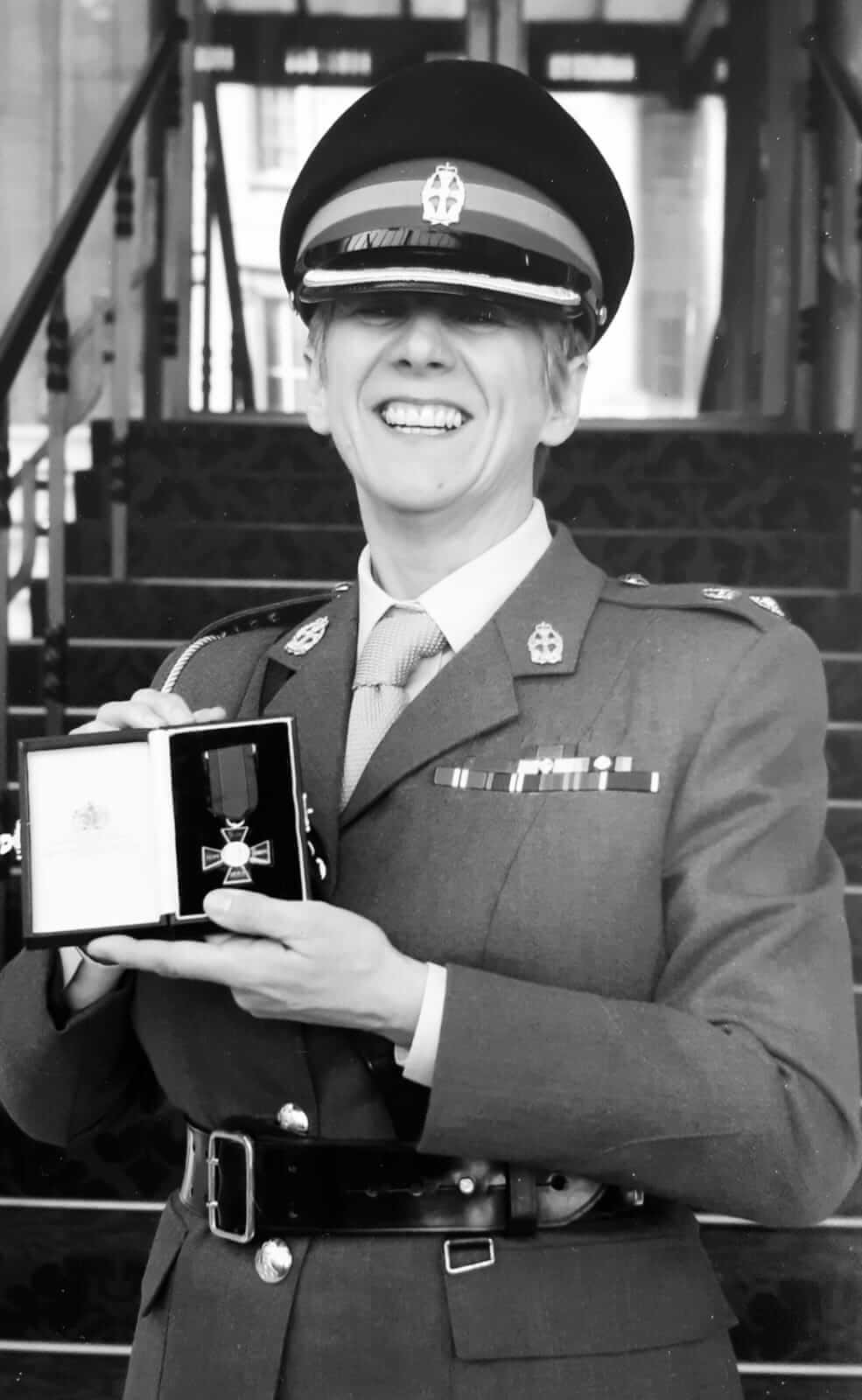
“One thing that came in just before I left was women going into combat units. There was a huge amount of debate. The argument from some of the men was, ‘That’s not fair, because you’ll let the standards drop so the women can get in.’ While the women said, ‘No, we’ll achieve those standards’. So they put on a pilot course and the women absolutely whipped the backsides of some of the men and genuinely reached the standards. There was absolute shock horror that women could do that!
And everything has to be gender-neutral. In my last year, they changed the fitness test. It’s much more functional now, which takes the focus off being male or female. It used to be that women could do it slower, but they got rid of all that. I did think, ‘Bloody hell, I’m 50 and I’m doing the same as an 18-year-old boy!”
“The Chelsea Pensioners respect my rank”
The military culture at the Royal Hospital is a comfortable one for Jayne. She is confident that the women Pensioners hold their own in a largely male environment and has found that her military background has its advantages:
“In my first or second week, one of the Chelsea Pensioners needed to come to the isolation unit and refused to go when the locum GP told him to. So I went in and the IP asked me if I was Matron, I said yes. He followed up with you’re a Colonel aren’t you? I replied yes and said I think you need to go to the isolation unit.’ He said, ‘Colonel, if you think that’s what I need to do, I’ll do that.’ Even before they know me, they respect my rank.”
